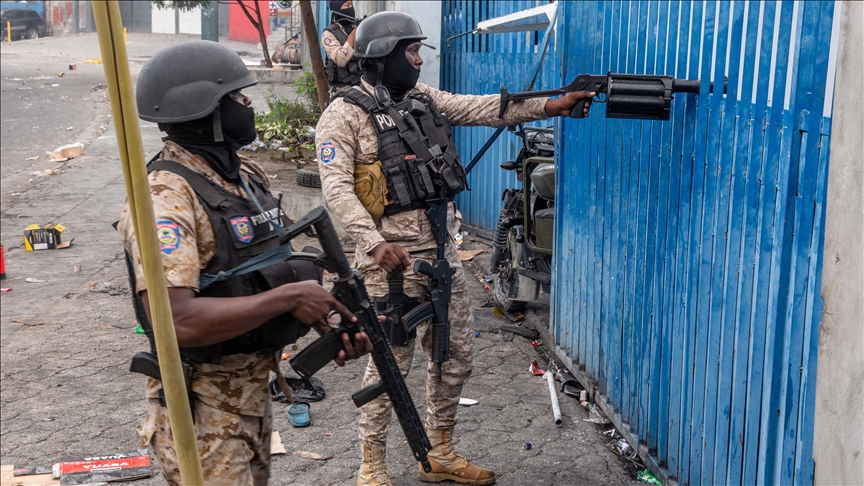
BOGOTA, Colombia
Louis*, 22, recalls the day a gang of criminals stopped his bus on his way home a year ago.
He took the bus in Delmas, in the Western Department of Haiti, to get home after work to Carrefour, a Port-au-Prince neighborhood, when members of an armed gang stopped his bus as it passed through Martissant, a gang stronghold.
“The gangs stopped the bus, made us get out, and stole things from us,” Louis said. “I didn't know what they were going to do to us.”
Hours later, they were allowed to continue with their journey.
“I knew the road was dangerous because sometimes I heard gunshots but I used to take the risk,” he said. “I lived with the fear of going to the streets, but when that happened to me, I just started to be fearful of everything,” he added.
Thousands of Haitians, like Louis, are caught in the crossfire between rival gangs that control large parts of the country.
Large swathes controlled by gangs
Pedro Braum, program coordinator of the Rio de Janeiro-based NGO Viva Rio in Haiti, estimates that more or less 70% of the Port-au-Prince metropolitan area is now controlled by gangs.
“The Haitian state has no capacity, no governance, so police and state institutions cannot enter the neighborhoods to enforce order,” says the representative of the nongovernmental organization that has been combating poverty and violence in the Caribbean nation since 2004.
The two gangs fighting for territory are the "G9 and Family" and its rival, G-PEP. Braum says gangs have political aspirations and each one of them is linked to different political parties.
“They not only control huge portions of the territory, but they also fight each other for the monopoly of extortion resources and political influence,” Braum told Anadolu Agency.
A report published by Doctors Without Borders revealed that thousands of Haitians are trapped by the violence, unable to leave their homes, and with no access to water, food, fuel, education, or healthcare, just as the country confirms a new cholera outbreak.
The escalating violence already left hundreds of people dead in the country and drove thousands of people to flee their homes.
“Whoever has the capacity to leave the country, is leaving,” says Louis.
Call for int'l support
The UN released a report on Friday accusing the country’s gangs of using rape as a tool of intimidation and control and kidnappings continue to soar.
In response to the rapidly deteriorating security and humanitarian situation there, Prime Minister Ariel Henry has asked the international community for military assistance to address the actions of criminal gangs.
The US has circulated a draft UN Security Council resolution proposing “the immediate deployment of a multinational rapid action force” to Haiti and US Secretary of State Antony Blinken also announced that the US will “increase and deploy” security assistance to the Haitian National Police to “strengthen their capacity to counter gangs.”
The situation in Haiti has worsened since the assassination of President Jovenel Moise a year ago, which left a political vacuum that has plunged Haitians into deep uncertainty about the future.
“We are seeing a whole generation of young men who could have been the change that the country needs, but now they are looking for guns to survive,” says Braum.
Louis moved to Delmas to be able to go to work without facing the danger of being killed by gangs. On weekends, he goes to visit his family at Carrefour but takes the long road around Martissant.
*The name of the person has been changed to protect his identity
Anadolu Agency website contains only a portion of the news stories offered to subscribers in the AA News Broadcasting System (HAS), and in summarized form. Please contact us for subscription options.



